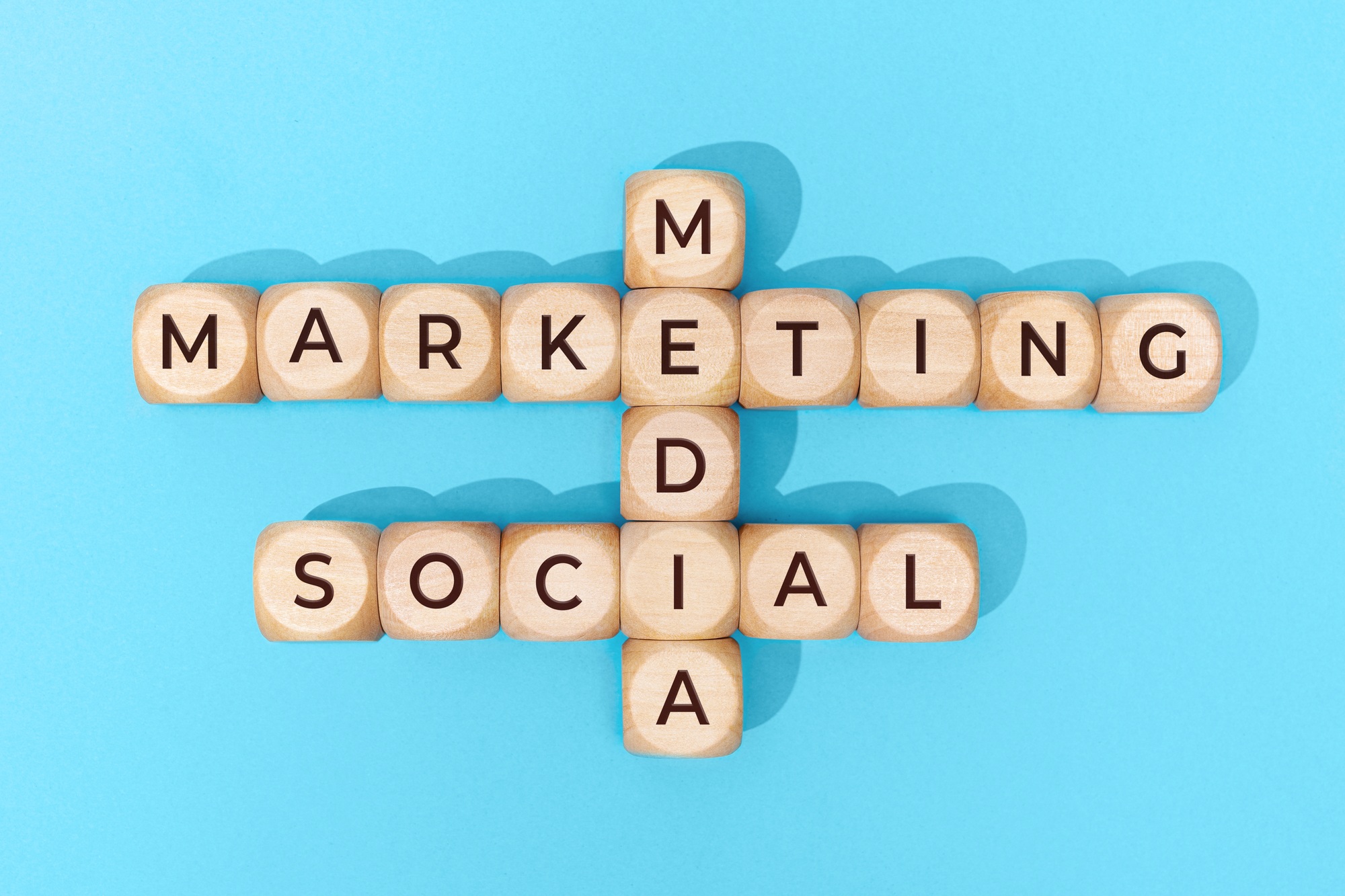Key Takeaways

- Understanding Digital Marketing: Digital marketing covers a wide range of strategies including SEO, PPC, and content marketing that enhance online visibility and drive customer engagement.
- Importance of Social Media: Social media marketing focuses on connecting with audiences through various platforms, fostering relationships, and promoting brand loyalty.
- Key Components: Essential elements like SEO, PPC, and content marketing work together to improve visibility, attract traffic, and establish brand authority in your niche.
- Audience Engagement: Actively engaging with your audience through comments and polls strengthens community ties and turns customers into brand advocates.
- Integration of Strategies: Combining digital and social media marketing can enhance brand visibility, improve targeting, and create a more cohesive marketing strategy.
- Cost-Effectiveness: Utilizing both digital and social media marketing approaches can lower overall marketing costs while maximizing reach and effectiveness for small businesses.
In today’s fast-paced digital world, understanding the nuances of digital marketing and social media marketing can set you apart from the competition. With billions of users online, leveraging these platforms effectively can elevate your brand’s presence and drive engagement.
Digital marketing encompasses a broad spectrum of strategies, from search engine optimization to email campaigns. Meanwhile, social media marketing focuses on creating meaningful connections with your audience through platforms like Facebook, Instagram, and Twitter. Together, they form a powerful toolkit for reaching your target market and achieving your business goals. Embracing these strategies not only boosts visibility but also fosters lasting relationships with your customers.
Overview Of Digital Marketing And Social Media Marketing

Digital marketing encompasses all online marketing efforts, critical for small businesses aiming to grow their reach and visibility. Social media marketing serves as a vital component, helping you connect with your audience on popular platforms.
Definition Of Digital Marketing
Digital marketing refers to promoting products or services through various online channels. This strategy includes search engine optimization (SEO), email marketing, content marketing, and online advertisements. Each tactic helps you attract and engage potential customers. For small businesses, utilizing digital marketing effectively enhances local visibility and drives website traffic, ultimately increasing sales.
Definition Of Social Media Marketing
Social media marketing focuses on creating and sharing content on social media platforms to build your brand and engage with customers. Sites like Facebook, Instagram, and Twitter allow you to connect directly with your audience and foster relationships. Social media marketing also involves targeted advertising that reaches specific demographics, allowing small businesses to effectively promote local offers and events to the right people. By leveraging these platforms, you enhance your online presence and cultivate customer loyalty.
Key Components Of Digital Marketing

Digital marketing includes various strategies that enhance your business’s online presence. Focusing on key components helps you optimize efforts for better performance and visibility.
Search Engine Optimization (SEO)
SEO is essential for driving organic traffic to your website. You improve your site’s rankings on search engines like Google by using targeted keywords, high-quality content, and strategic backlinks. Enhanced site speed and streamlined navigation create a better user experience, ultimately attracting more visitors. For your small business, effective SEO practices can significantly increase local visibility and reach in a competitive market.
Pay-Per-Click Advertising (PPC)
PPC advertising allows you to target specific audiences through paid ads on digital platforms. You bid for keywords relevant to your business, ensuring your ads appear in search results when users search for these terms. This method provides immediate visibility, driving traffic to your website quickly. For local marketing, PPC can help you promote tailored offers to nearby customers, maximizing your ad spend and increasing conversion rates.
Content Marketing
Content marketing involves creating valuable content that resonates with your audience. You can share articles, blogs, or videos that address your customers’ needs and questions, engaging them while establishing your brand’s authority. Consistent and relevant content not only improves SEO but also enhances relationships with potential customers. For your small business, utilizing social media platforms for content distribution amplifies outreach and encourages interaction, fostering a community around your brand.
Essential Elements Of Social Media Marketing

Social media marketing encompasses several vital components that empower small businesses to connect with their audience effectively. By focusing on the following elements, you can enhance your online presence and strengthen customer relationships.
Social Media Platforms
Identify the right social media platforms for your business. Facebook, Instagram, Twitter, and LinkedIn serve different audiences and purposes. Tailor your content based on platform demographics and user behaviors. For instance, Instagram thrives on visual content, while Facebook is ideal for diverse engagement forms. Assess which platforms resonate best with your target audience to maximize your local marketing efforts.
Content Strategy
Develop a content strategy that aligns with your business goals. Create high-quality content that resonates with your audience’s interests and needs. Incorporate a mix of informative articles, engaging visuals, and promotional posts that showcase your offerings. Use tools like analytics to measure what content performs best, allowing you to refine your approach and improve engagement continuously. A clear content strategy not only drives traffic but also helps build brand authority in your niche.
Audience Engagement
Foster audience engagement through active interaction. Respond to comments, messages, and reviews promptly to show that you value your customers’ opinions. Encourage discussions by asking questions and creating polls. Engaging with your audience cultivates a sense of community, turning customers into loyal advocates for your small business. Prioritize creating genuine connections to boost your brand’s visibility and credibility in the competitive market.
The Relationship Between Digital Marketing And Social Media Marketing

Digital marketing and social media marketing work in tandem to drive growth for small businesses by enhancing visibility and engagement. Understanding how they relate can boost your marketing effectiveness.
Integration Strategies
- Utilizing Cross-Platform Campaigns: Implement campaigns that run simultaneously across digital channels and social media platforms. Consistent messaging strengthens brand awareness.
- Leveraging Data Analytics: Analyze data from both digital marketing and social media efforts. Use insights to refine tactics and better target your audience in real-time.
- Coordinating Content Creation: Align your content strategy across digital marketing and social media. Create engaging posts that can be shared across your website and social media platforms.
- Encouraging User-Generated Content: Foster community by encouraging customers to share their experiences related to your products or services on social media. Feature these testimonials on your digital platforms for authenticity.
Benefits Of Combining Both Approaches
- Increased Brand Visibility: Combining both approaches amplifies your reach. A strong digital presence supported by social media significantly increases exposure to potential customers.
- Enhanced Customer Engagement: Engaging your audience through social media enhances connection and loyalty. This connection translates into repeat business and word-of-mouth referrals.
- Improved Targeting: Utilize social media insights to fine-tune your digital marketing efforts. You can reach specific demographics more effectively with targeted advertising campaigns.
- Cost-Effective Solutions: Implementing integrated strategies often results in lower marketing costs. Small businesses can utilize organic social media to supplement paid digital advertising, ensuring effective local marketing without excess expenditure.
Conclusion

Embracing digital marketing and social media marketing is essential for your business’s success in today’s digital age. By effectively combining these strategies you can significantly enhance your brand’s visibility and foster deeper connections with your audience.
Utilizing tools like SEO and targeted advertising not only drives traffic but also ensures you’re reaching the right people at the right time. Engaging content and active interaction on social media platforms can build a loyal community around your brand.
As you navigate this dynamic landscape remember that consistency and authenticity are key. By integrating your digital efforts you can create a powerful marketing presence that resonates with your audience and drives growth.
Frequently Asked Questions

What is digital marketing?
Digital marketing refers to all online marketing efforts that promote products or services through digital channels. This includes tactics such as search engine optimization (SEO), content marketing, email campaigns, and online advertisements, which help businesses increase their visibility and reach in the digital landscape.
Why is digital marketing important for small businesses?
Digital marketing is crucial for small businesses as it enhances brand presence, drives traffic, and improves customer engagement. By leveraging various online strategies, small companies can compete effectively in the digital marketplace and reach larger audiences.
How does social media marketing complement digital marketing?
Social media marketing is a vital part of digital marketing, focusing on building relationships with audiences on platforms like Facebook and Instagram. It allows businesses to create engaging content, promote offers, and target specific demographics, enhancing overall marketing effectiveness.
What is SEO and why is it important?
Search engine optimization (SEO) is the practice of improving website visibility on search engines like Google. By optimizing content with targeted keywords and backlinks, businesses can drive organic traffic, enhance their online presence, and ultimately increase conversions.
What is Pay-Per-Click (PPC) advertising?
Pay-Per-Click (PPC) advertising is an online advertising model where businesses pay for each click on their ads. It provides immediate visibility and can effectively target specific audiences, driving traffic and potential customers quickly to a website.
How can small businesses effectively use content marketing?
Small businesses can use content marketing by creating valuable and engaging content that resonates with their audience. This includes blog posts, videos, and infographics that establish brand authority, engage customers, and foster community relationships.
Why is audience engagement important in social media marketing?
Audience engagement is crucial because it builds a sense of community and loyalty among customers. Actively interacting with users through comments and discussions helps enhance brand visibility and credibility while fostering lasting relationships.
How can data analytics improve marketing strategies?
Data analytics allows businesses to measure the effectiveness of their marketing strategies. By analyzing consumer behavior and engagement metrics, businesses can refine their tactics, tailor their content, and make informed decisions for future marketing campaigns.
How can businesses integrate digital and social media marketing?
Businesses can integrate digital and social media marketing by coordinating cross-platform campaigns with consistent messaging. Utilizing analytics and encouraging user-generated content can enhance both strategies, leading to improved customer engagement and brand visibility.
Image Via Envato



